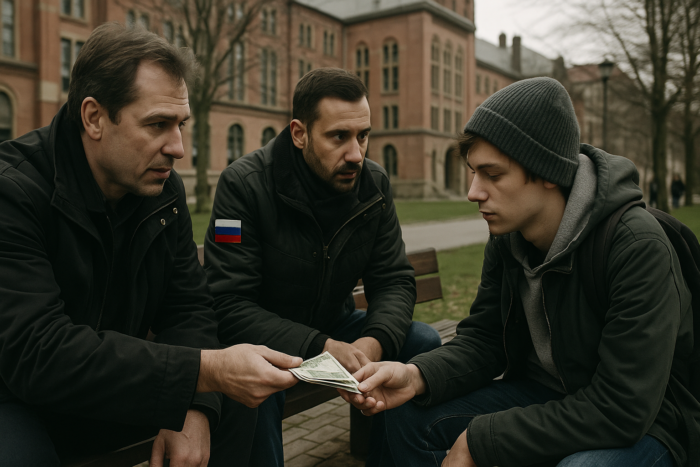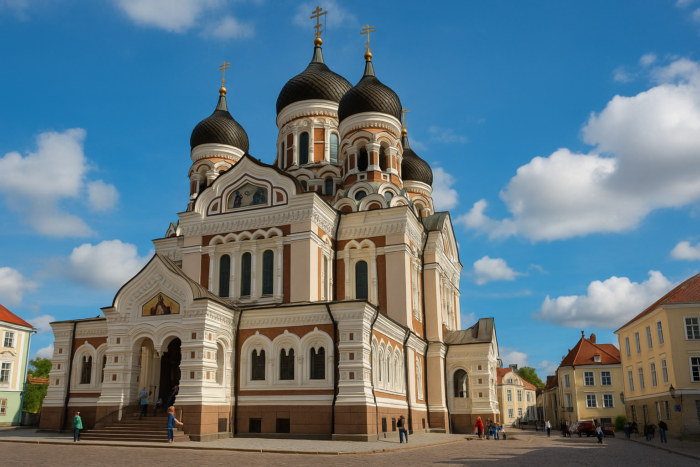Russia Baltic states Russian-speaking minorities have become targets of systematic influence operations according to Ukrainian media analysis. On August 19, 2025, UNITED24 Media reported that Moscow uses social media platforms to exploit ethnic divisions in Estonia, Latvia, and Lithuania, shifting from banned state TV channels to Telegram, TikTok, Facebook, and X to spread claims of discrimination against Russian speakers. The article begins:
If your country has any Russian-speaking communities, Russia may see an opportunity to assert influence. For decades, Moscow has exploited language and disinformation to advance its strategic goals and lay the groundwork for future invasions. This approach has been used repeatedly. In Georgia, Russian policy stoked tensions in the Tskhinvali region and Abkhazia, culminating in the 2006 “referendum”—an overwhelming vote for independence conducted under heavy Russian influence and widely rejected as illegitimate by both Georgia and the international community.
Key Points
- Russian propaganda on social media portrays Baltic government language policies as discrimination while branding restrictions on Russian state media as “free speech violations” and comparing them to Nazi actions.
- Facebook accounts disguised as local community groups like “Tallinners” or “Russian-speaking Estonia” push narratives that aid to Ukraine is “foolish” and that “life was better with Russia.”
- The Baltic states responded with protective measures including Estonia’s transition to Estonian-only school instruction by 2030 and Latvia’s 2026 mandate for public media exclusively in Latvian or European languages.
- Former Latvian President Egils Levits emphasized that national cohesion and clear identity serve as the primary defense against Russian interference, warning of Moscow’s “undefeated imperialistic spirit.”
Russian Influence Operations in the Baltics
Russia’s influence operations in the Baltic states are deeply embedded in the region’s social, political, and religious fabric, pursuing ideological leverage through a blend of soft power, proxy networks, and disinformation campaigns that exploit local ethnic Russian communities and longstanding Soviet-era ties. In Estonia, the government has taken legislative action to curb Russian Church influence by mandating a break with the Moscow Patriarchate, reflecting anxieties over the Russian Orthodox Church’s role as both a spiritual body and a vehicle for Kremlin-aligned narratives amid heightened regional tensions.
This legal response is emblematic of broader Baltic efforts to insulate internal institutions from Russian hybrid influence, which also includes detailed Russian strategies for political, social, and cultural penetration outlined in recent analytical reports. Moscow’s playbook leverages the region’s Russian-speaking minorities—via Kremlin-linked media, NGOs, and cultural organizations—to promote narratives that distrust national governments, amplify social divisions, and normalize perceptions of military threat, as quantitative studies have documented significant increases in public skepticism toward state institutions and heightened senses of vulnerability to conflict.
These operations are not confined to information warfare: Russian economic interests, energy dependencies, and political proxies historically provided additional pressure points, though Baltic integration into EU and NATO structures, energy diversification, and proactive counter-disinformation policies have sharply reduced Moscow’s coercive leverage in recent years. Nonetheless, the persistence of Russian disinformation—now amplified by digital platforms and AI—continues to challenge societal cohesion, requiring ongoing vigilance, media literacy programs, and transnational coordination to safeguard democratic resilience in the region.
External references:
- Russia’s Information Influence Operations in the Nordic-Baltic Region
- The Russian Diaspora in the Baltic States: Autonomy, Influence and the Limits of Kremlin Soft Power
- Does the Russian Influence Strategy Work in the Baltic Countries?
Disclaimer
The Global Influence Operations Report (GIOR) employs AI throughout the posting process, including generating summaries of news items, the introduction, key points, and often the “context” section. We recommend verifying all information before use. Additionally, images are AI-generated and intended solely for illustrative purposes. While they represent the events or individuals discussed, they should not be interpreted as real-world photography.










